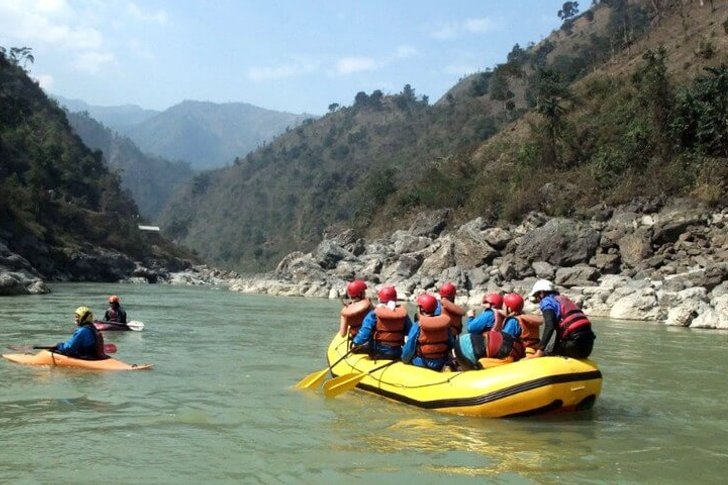Most of the territory of the Federal Democratic Republic of Nepal is occupied by the Himalayas - the highest mountain system on Earth. But not only lovers of mountain climbs or other activities come here. Nepal is famous for its spiritual practices, so everyone who is looking for enlightenment or parting words tries to visit the holy places of this country.
In spring and especially in autumn, lovers of mountain climbs come to Nepal. Here you can make a track of almost any level of difficulty, and the most daring can try to conquer the highest peak of the Earth.
You can admire the unique nature of this country in three national parks, which require special permits to visit. In addition to unforgettable impressions, warm blankets and pashmina clothes, various handmade ceramic and leather products, Nepalese tea and souvenirs are usually brought from Nepal.
What to see in Nepal?
The most interesting and beautiful places, photos and a brief description.
- Kathmandu Valley
- Kathmandu city
- Lumbini
- The ancient city of Patan (Lalitpur)
- Bhaktapur city
- Pokhara city
- Mount Chomolungma (Everest)
- Kangchenjunga mountain range
- Durbar Square (Kathmandu)
- Annapurna National Park
- Chitwan National Park
- Sagarmatha National Park
- Dharahara (Bhimsen Tower)
- Swayambhunath Temple Center
- Pashupatinath temple
- Copan Monastery
- Temple Center Boudhanath
- Kumari Ghar Temple (Temple of Goddess Kumari)
- Mehendra cave
- Lake Phewa (Phewa)
- Trekking in the mountains of Nepal
- Rafting in Nepal
Kathmandu Valley
One of the most visited and developed places in Nepal is the Kathmandu Valley. More than 130 local archaeological sites, some of which date back to the 1st century AD, attract tourists from all over the world. There are also several temple complexes sacred to Buddhists and Hindus.
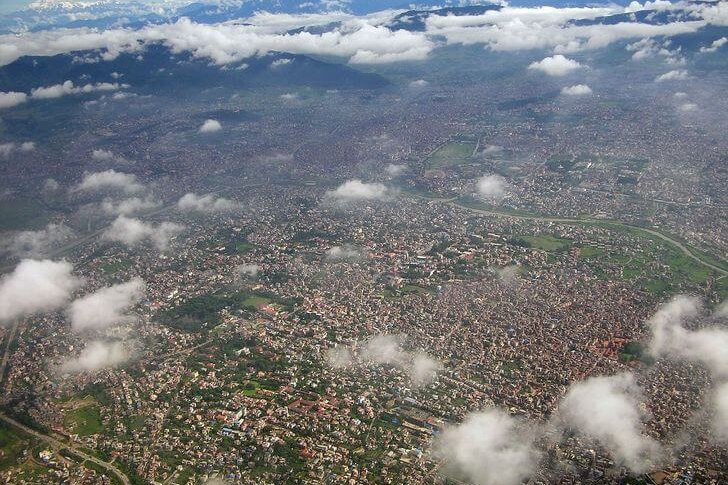
Kathmandu city
Kathmandu is the largest city in Nepal, its capital and cultural center. Many temples, narrow picturesque streets, famous stupas, palaces and museums - this is not a complete list of Kathmandu attractions. And to the north of Palace Square there is a new tourist center where you can spend the night, eat or get access to the Internet.

Lumbini
The famous Nepalese settlement where, according to legend, Buddha was born. Lumbini is a place of pilgrimage and a popular tourist attraction in Nepal. This complex consists of many monasteries, temples and stupas, among which the main place is occupied by the Maya Devi temple, which is adjacent to the column of King Ashoka.
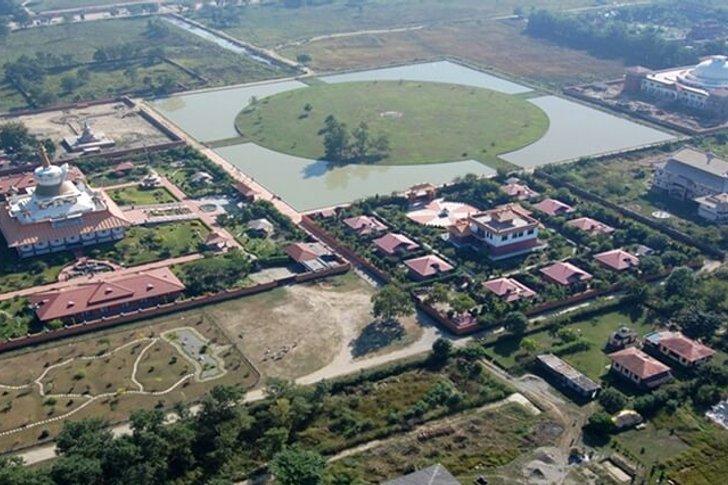
The ancient city of Patan (Lalitpur)
One of the most ancient settlements, which now almost merges with the capital of Nepal. The center of Patan is the Durbar Temple Square, where about 10 temples are located, in which a variety of deities are worshipped. You can also visit the Buddhist monastery where the rulers of Nepal were crowned, and in Patan you can buy souvenirs for every taste or just visit the zoo.
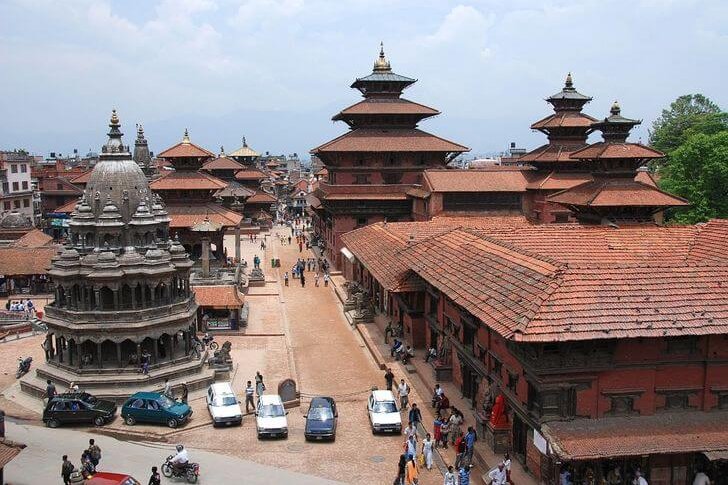
Bhaktapur city
The ancient city, located to the east of Kathmandu, is appreciated by Nepalese tourists for its authentic look and numerous architectural monuments. The most visited places in Bhaktapur are the Krishna Temple, the Royal Palace, Thaumadhi Tole Square, the bell and the temple of the goddess Taleju. Fans of organized excursions should visit the Bhaktapur National Art Museum.
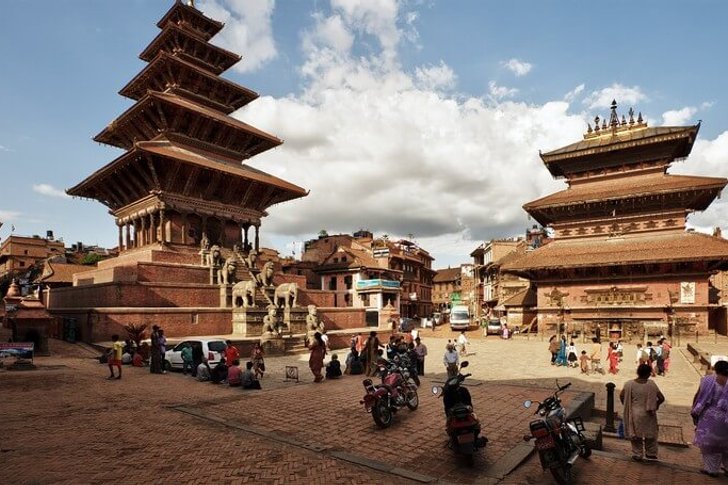
Pokhara city
The third largest city in Nepal. The local picturesque Phewa Lake and beautiful views of the Himalayas make this city popular among tourists. Many mountain tourist routes start from Pokhara, and lovers of a comfortable stay can expect the Lakeside quarter, where you can find a hotel, restaurant or club for every taste and budget.
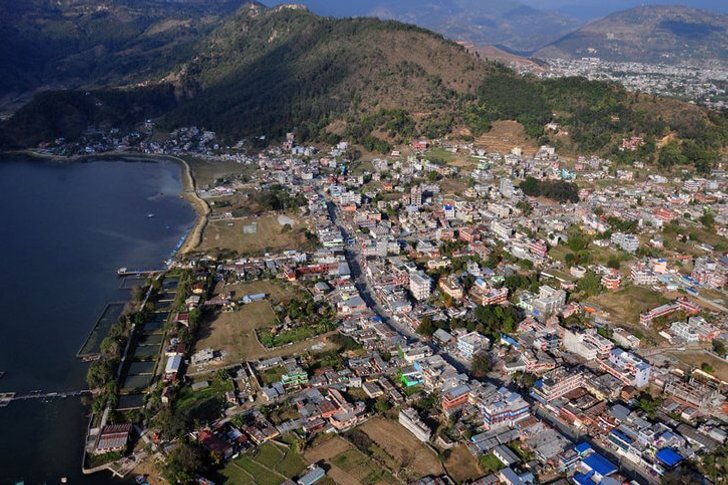
Mount Chomolungma (Everest)
The visiting card of Nepal is the highest earthly peak, which many climbers from all over the world are trying to conquer. The best time to climb Everest is spring and autumn, and the approximate preparation time takes about 2 months and is quite expensive. For those who are not ready to spend a lot of time and money, the Base (altitude 5300 m) and Advanced Base (altitude 6400 m) camps are open.

Kangchenjunga mountain range
On the border of India and Nepal is the Kanchenjunga mountain range, consisting of 5 peaks. Attempts to "take" the summit of Kanchenjunga have been made since 1905, but only in 1955 did the members of the British expedition succeed. Climbing this mountain range is quite difficult and dangerous, so only experienced climbers can do it.
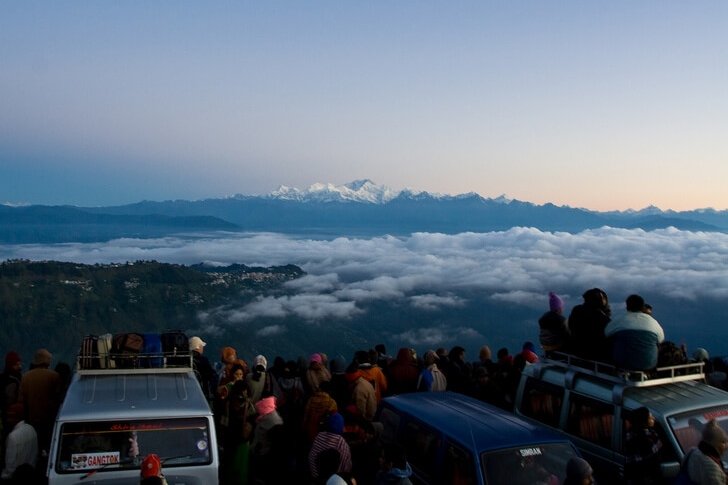
Durbar Square (Kathmandu)
One of the highlights of Kathmandu is the Durbar Square. Entrance here is paid, but the ticket is valid all day. In total, there are about 50 archaeological sites here, and the Hanuman Dhoka Palace is considered the center of the square, from the high tower of which a beautiful view of the city opens. Unfortunately, many local attractions were badly damaged by the earthquake in 1934.
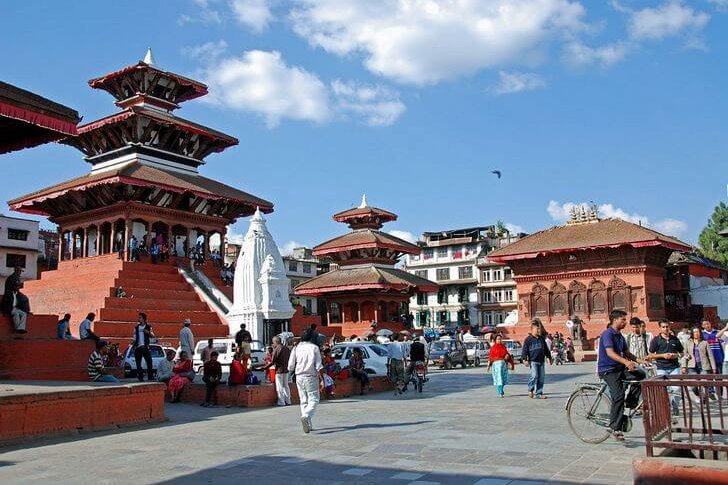
Annapurna National Park
In 1986, the Annapurna National Park was created to protect the Annapurna mountain range. The main purpose of visiting these places is mountain climbs. There are several hiking trails in the park, the longest of which is called the Annapurna Trek. Also in the park there are sacred places of Hindus and Buddhists, and climbing one of the mountain peaks is prohibited for religious reasons.
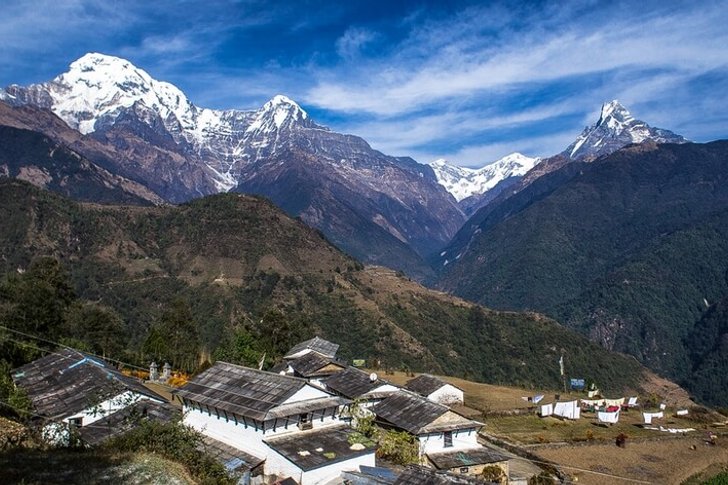
Chitwan National Park
200 km from the capital is the Royal Chitwan National Park, formed in the favorite hunting grounds of the Nepalese kings. Since 1973, Chitwan has been protected by the state, and wild animals can be observed here in their natural habitat. In this national park, tourists can stay in small houses, and excursions around the territory are made by jeeps or elephants.
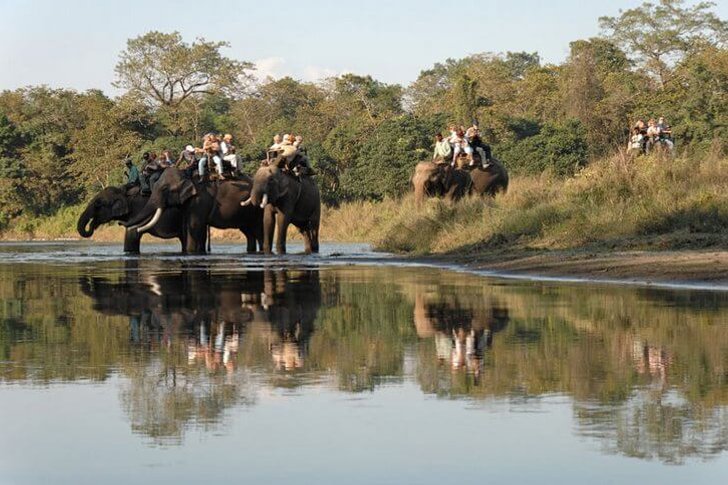
Sagarmatha National Park
Since 1976, more than 1,000 km² of the Himalayas have belonged to the protected area of the Sagarmatha National Park. Within the boundaries of this park is the famous peak of Everest. There are also several villages in which the Sherpas live, providing guides and guides for those who want to conquer Everest. There are several Buddhist monasteries in Sagarmath, the most famous of which is Thyangboche.
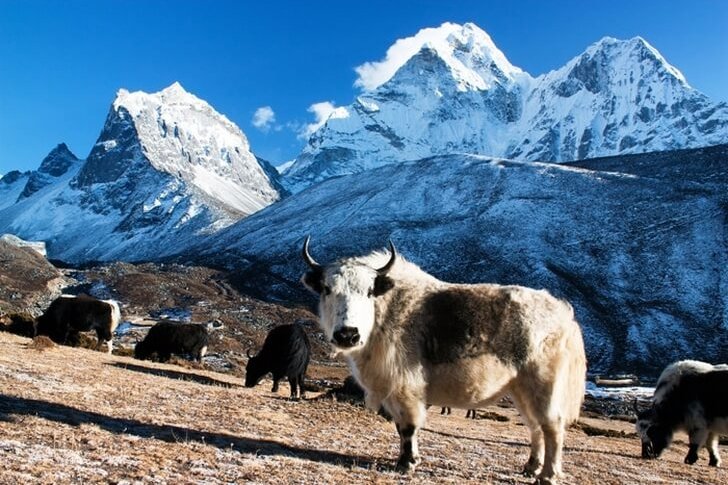
Dharahara (Bhimsen Tower)
In the 19th century, two 11-story towers of Dharahara and Bhimsen were built in the central part of Kathmandu, on which special observers were on duty and gave a signal at the sight of the enemy. After the destruction of one of the towers in 1934, both names passed to the surviving tower. Since 2005, Dharahara has been open to tourists, but the 2015 earthquake completely destroyed this structure.
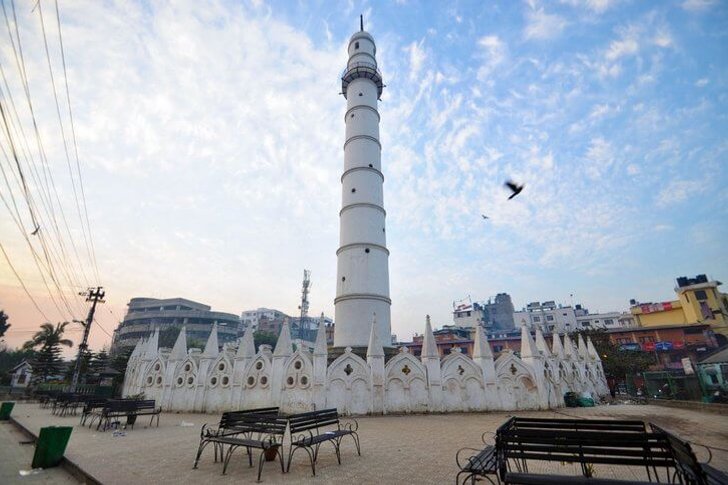
Swayambhunath Temple Center
One of the most revered Buddhist centers is located in the village of the same name on the outskirts of the capital of Nepal. There are 365 steps leading to the hill on which the central Buddhist stupa Swayambhunatha is located. The stupa itself is surrounded by a park, and there are several Tibetan monasteries nearby. Many monkeys also live in the vicinity of the hill.
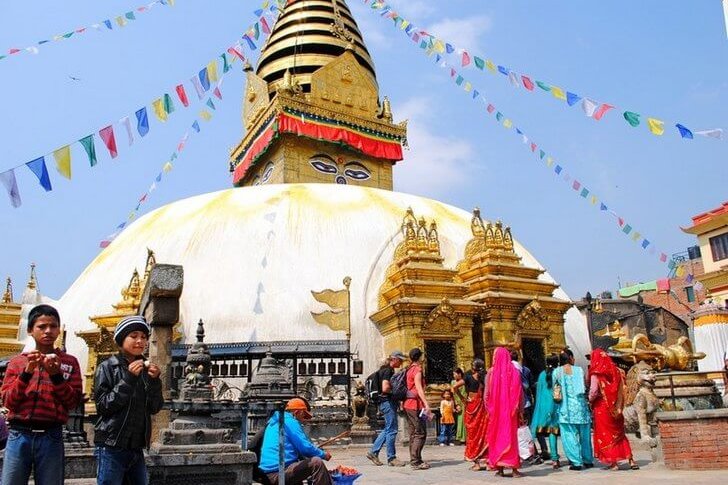
Pashupatinath temple
The large Hindu complex of Pashupatinath, located in the east of Kathmandu, is extremely popular among tourists, and many locals visit it daily. Wandering yogis gather here, and hermits live in caves. Funeral ceremonies are held in the large temple courtyard on the west bank of the river, usually watched by tourists from the east bank.
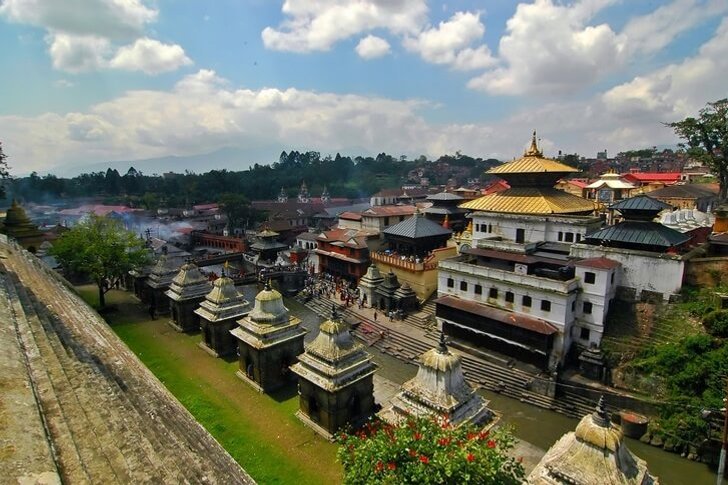
Copan Monastery
The Buddhist monastery was founded in 1969 and is located on the outskirts of Kathmandu. Kopan is open to everyone. This place is known all over the world for its meditation courses. They are conducted by experienced Lam-rim masters on average once every couple of months. Also here you can get an individual consultation of the abbot of the monastery.
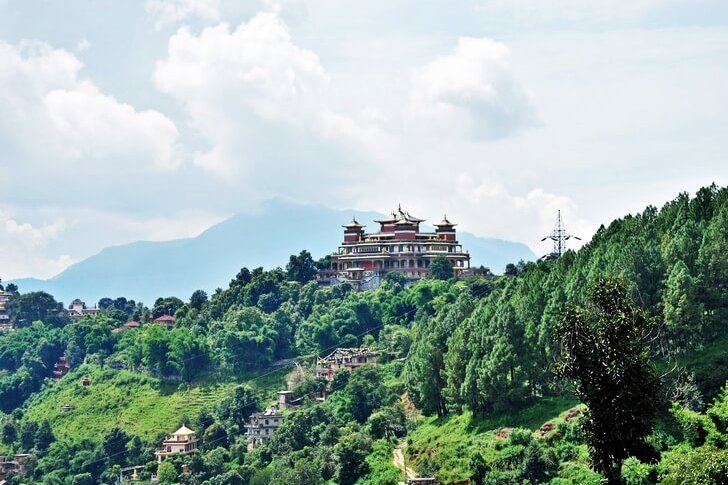
Temple Center Boudhanath
One of the main centers of Buddhism in Nepal is the temple complex of Boudhanath. In the center of the complex there is a large stupa in the form of a spatial mandala, and around it there are many monasteries of different directions and schools. Also on the territory of Boudhanath there are shops, souvenir shops and even restaurants.
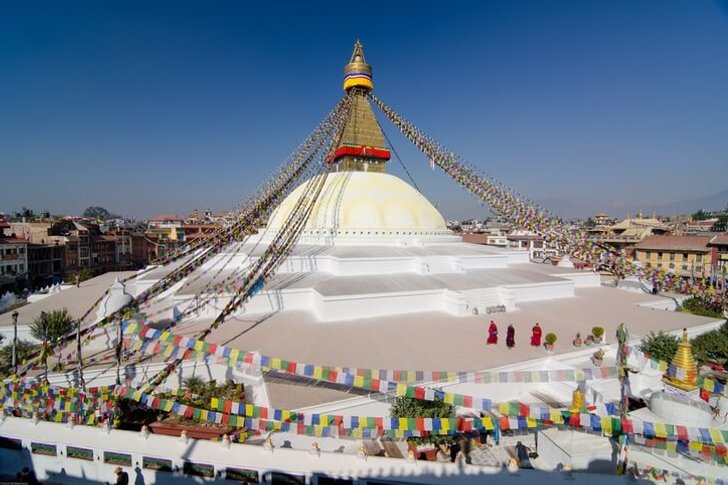
Kumari Ghar Temple (Temple of Goddess Kumari)
The living Hindu deity Kumari, the incarnation of the goddess Taleju, has its own temple built in the 18th century. The goddess, who lives in the three-story palace of Kumari Ghar, becomes a little girl from the Shakya caste, who meets special criteria. Often, Nepalese people can be seen under the windows of the temple, waiting for Kumari to look at them.
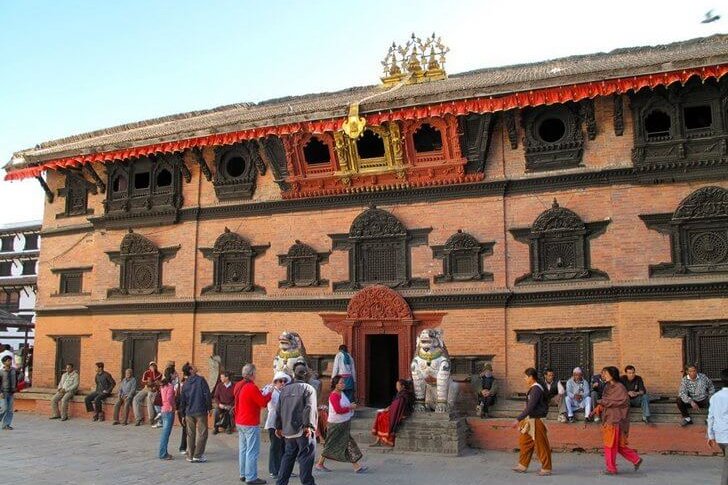
Mehendra cave
The locals call the Mehendra Cave “the home of bats” because many of these animals have found shelter here. Many of the stalactites decorating this cave were artificially given the appearance of the Hindu god Shiva by the Nepalese. The lighting in Mehendra is not very good, so tourists should bring lanterns here.
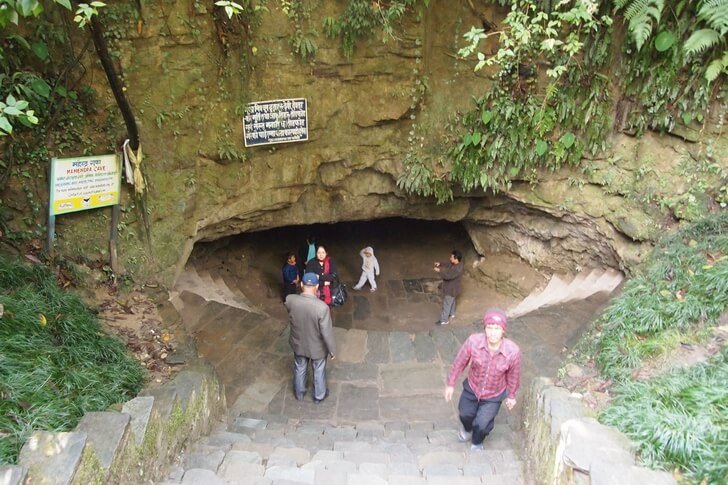
Lake Phewa (Phewa)
The extraordinarily picturesque freshwater Lake Phewa spills into the valley near Pokhara. In clear weather, in the clear waters of Phewa, you can watch the reflection of the peaks of the Annapurna mountain range. And in the middle of the lake there is an island on which the Bahari temple is located. To visit this religious monument, you should take a boat trip.
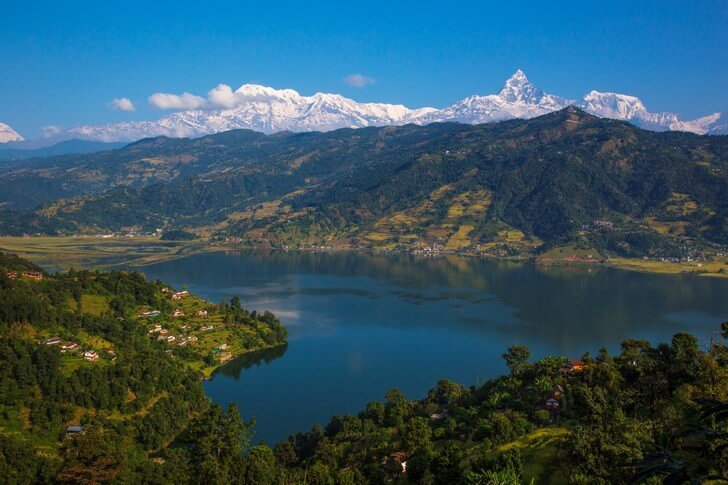
Trekking in the mountains of Nepal
The best time for hiking in the Himalayas is the autumn months. It was at this time that many tourists come to the country who want to make trekking climbs to the Nepalese mountain peaks. The most popular are quite difficult and expensive routes to the base camps of Annapurna and Everest.
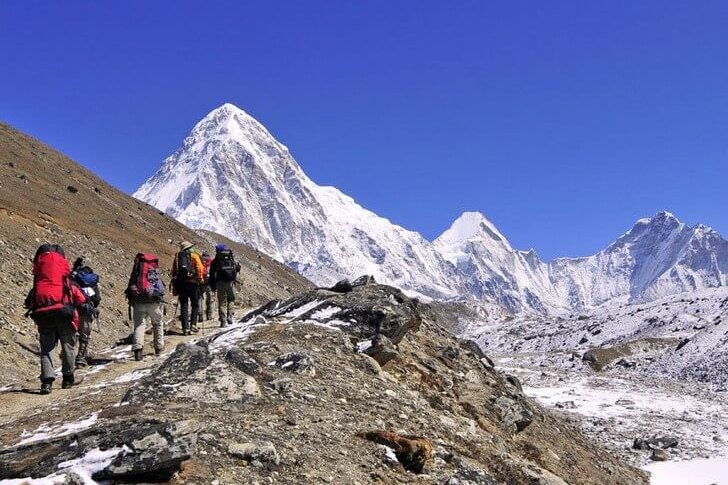
Rafting in Nepal
Among other entertainments, rafting is quite popular in Nepal - rafting on mountain rivers on special inflatable boats. Many Himalayan rivers are perfect for this sport, which allows you to choose a route with any complexity of rafting. So, the Bhote Kosi river is considered one of the best options, Trisuli is suitable for a leisurely family rafting, and the San Kosi river will certainly appeal to trained athletes.
